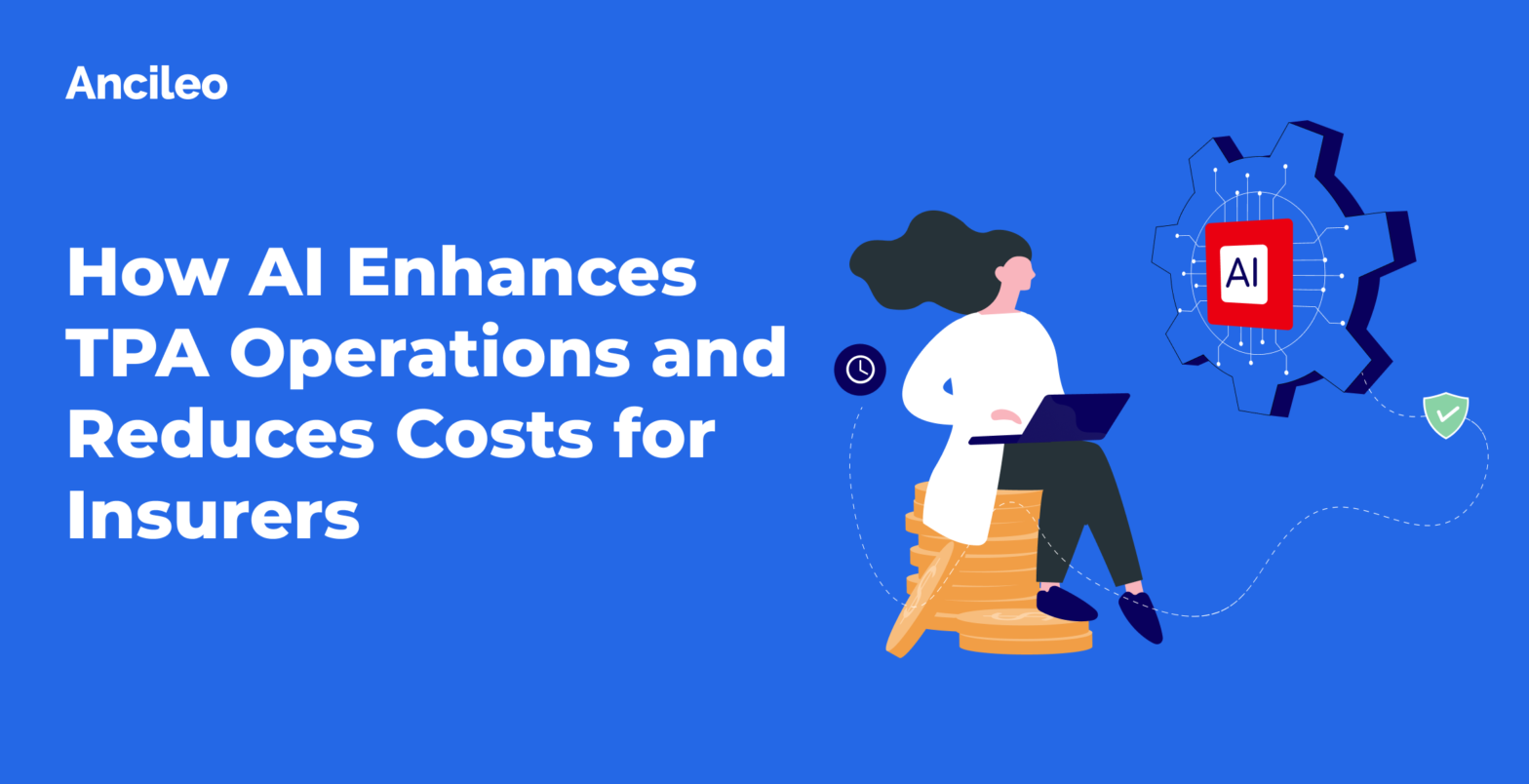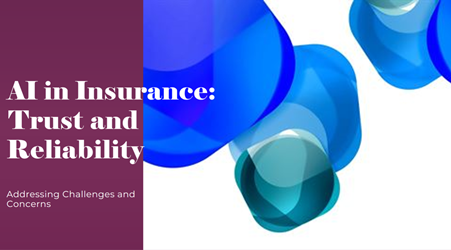
In the world of insurance, Third-Party Administrators (TPAs) act as behind-the-scenes superheroes, handling crucial tasks for insurers and self-funded plans. The insurance industry, particularly Third-Party Administrators (TPAs) who handle a large volume of claims processing, is ripe for a revolution. This revolution is being driven by Artificial Intelligence (AI), a powerful technology that is transforming how businesses operate.
By implementing AI solutions, TPAs can significantly improve their operational efficiency, reduce costs, and ultimately deliver a better experience for insurers and policyholders alike. AI has the potential to streamline claim processing, improve fraud detection, enhance customer engagement, and optimize operational efficiency for insurers and TPAs alike. In the travel insurance industry, Third-Party Administrators (TPAs) play a crucial role in facilitating and managing insurance claims, policy administration, and customer service on behalf of insurers.
The efficient and seamless functioning of TPAs is essential for insurers to deliver prompt and reliable services to policyholders, especially during travel-related emergencies. To streamline the TPA operations in travel insurance AI plays a crucial role nowadays. By harnessing the power of AI, TPAs can significantly enhance their functioning and deliver superior services to both insurers and policyholders. This article will explore how AI is enhancing efficiency and reducing costs for insurers by streamlining TPA operations.

Source: Third Party Administrator TPA Role in Health Insurance | Paytm Insurance
Third-party administrators (TPAs) play a crucial role in the travel insurance ecosystem, serving as intermediaries between the insurance company and the insured traveler. Their responsibilities include claims processing, policy administration, and customer service, ensuring a seamless experience for policyholders.
However, at the same time, the TPAS in traditional travel insurance may face some challenges. One of the biggest challenges is the manual process and paperwork. These manual and time-consuming processes, such as claim documentation and policy issuance, lead to inefficiencies and delays in service delivery. Data management and its analysis is another challenge that TPAs may face.
Managing and analyzing vast travel insurance data can be daunting for TPAs. Amidst these challenges, there is an urgent need for innovation in TPA travel insurance operations. Travel insurance TPAs face manual processes, fraud, and data silos. Technology like automation, data analytics, and digital platforms can streamline operations, improve data management, and ensure compliance. This tech revolution is crucial for efficient travel insurance.

Source: 4 Ways Innovators are Using AI in Insurance Claims Processes (tethr.com)
AI technology has significantly impacted the operations of TPA travel insurance by revolutionizing various aspects of the industry.
AI has enabled the automation of claim intake and triage, expediting the initial processing of claims. Through the implementation of AI algorithms, fraud detection and prevention have been enhanced, leading to more secure and reliable operations. Furthermore, AI has facilitated and accelerated the speed of adjudication processes, reducing the time to settle claims.
The integration of AI has enabled personalized customer interactions, allowing for tailored services and support. Predictive analytics powered by AI have facilitated proactive customer support, thus anticipating and addressing customer needs before they arise. Additionally, chatbots and virtual assistants of AI have improved response times and provided round-the-clock assistance to customers.
AI’s advanced data analytics capabilities have revolutionized risk profiling, providing insurance companies with more accurate risk assessments. Real-time insights generated by AI have enabled quicker and more informed decision-making while optimizing underwriting and risk assessment operations. Moreover, AI has significantly improved the accuracy and consistency of these processes.
AI has automated various administrative tasks such as policy management and renewals, streamlining these processes and reducing errors. Furthermore, AI has facilitated the automation of documentation and reporting, leading to more efficient and organized record-keeping. Additionally, AI has been instrumental in compliance monitoring and reporting, ensuring all regulatory requirements are met.
Gallagher Bassett is a renowned company delivering claims and risk management solutions to various insurance companies. They utilize AI and data science to enhance Third-Party Administrator (TPA) operations and reduce costs for insurers, particularly in the travel insurance claims space.
Their Luminos RMIS platform includes Gallagher Bassett’s claims expertise with AI-powered tools to deliver TPAs with valuable insights. It includes real-time data on program performance, risk assessments, and predictive analytics. These features empower TPAs to identify cost-saving opportunities, develop better strategies, and ultimately deliver superior claims outcomes for travel insurers.
CorVel Corporation is a famous national risk management provider company providing claims and risk management solutions to many insurance companies. They have launched a new Claims Risk Score interface in CareMC Edge® CorVel’s integrated claim management platform. Their CareMC Edge® platform leverages artificial intelligence (AI) to streamline Third-Party Administrator (TPA) operations and reduce costs for travel insurers.
This platform excels in a novel Claims Risk Score function that uses AI tools and predictive analytics to assess various claim data points. This score also identifies potentially problematic claims, enabling adjusters to take preventative measures and optimize claim outcomes. By pinpointing high-risk claims and proposing interventions, CareMC Edge® empowers TPAs to achieve greater claims management efficiency, ultimately reducing travel insurance costs for insurers.
Another digital claim TPA Platform from Xceedance utilizes AI throughout the claims process to improve accuracy and reduce costs for insurers, particularly in travel insurance. Marc Rothchild, Head of Claims, emphasizes the importance of high-quality data from the beginning. By integrating AI with data collection at the policy binding stage (e.g., location, coverage), they ensure a more accurate claims journey from the outset.
Furthermore, AI empowers self-service options for travel insurance claims, allowing insurers to submit information directly (photos, videos), which tends to be more accurate than third-party reports. Xceedance acknowledges that AI won’t handle the entire claims process yet. However, its role in improving data accuracy and streamlining specific steps is significant, leading to cost reductions for travel insurers.
Sedgwick provides claims and risk management solutions to different insurance companies. They leverage AI to enhance communication and streamline the travel insurance claims process, reducing insurers’ costs. Their My Sedgwick platform offers a mobile-first experience with AI-powered features to meet the growing demand for self-service claim management (70% of claimants use mobile devices).
AI-powered chat capabilities address basic claim inquiries in real-time, freeing up adjusters for complex issues. It improves the claimant experience and reduces processing time and associated costs for insurers using Sedgwick’s TPA services.
When quantifying the benefits of AI adoption, statistics and insights reveal significant advantages across various aspects of operations.
AI adoption has led to a substantial reduction in processing time, allowing for quicker and more efficient handling of tasks and workflows. AI has helped lower administrative overheads and enabled resources to be allocated more strategically. The implementation of AI has resulted in a noticeable decrease in error rates and re-work, contributing to overall cost reductions and improved operational efficiency. Studies show that the use of AI in claim processing leads to a 30% decrease in cost and a 15% increase in customer satisfaction.
Through AI, there has been a notable increase in the number of claims processed per day, leading to improved efficiency and faster customer service. AI adoption has facilitated significant time savings for underwriting processes, enabling faster decision-making and enhancing overall productivity. AI has brought about enhanced scalability and flexibility, allowing for smoother adaptation to changing business needs and market dynamics. AI helps travel insurance companies boost their productivity by up to 20% or more.
AI has contributed to a reduction in claim denials and disputes, improving customer satisfaction and streamlining the claims management process. The use of AI in travel insurance may lead to a 25% reduction in claim denials. Through AI-powered analytics and detection mechanisms, fraudulent activities have been reduced. Further leading to better risk management and cost savings. AI has empowered organizations with enhanced decision-making capabilities, leveraging data-driven insights to make more accurate and informed business decisions.

Source: (10) Challenges and Concerns Surrounding AI in Insurance | LinkedIn
To successfully implement AI solutions, organizations need to address several key considerations.
Data privacy and security are paramount when implementing AI systems in travel insurance. Organizations must ensure compliance with relevant data protection regulations and employ robust security measures to safeguard sensitive information. Implementing encryption, access controls, and regular security audits can help mitigate the risks associated with data privacy and security.
Integrating AI solutions with existing systems and processes can be a complex task. Compatibility issues, data migration, and interoperability challenges need careful management to ensure a seamless integration. Organizations should consider leveraging APIs and middleware to facilitate integration and minimize disruptions to existing operations.
Successful implementation of AI technologies requires a skilled workforce. Organizations should invest in training programs to upskill their employees and ensure they have the necessary expertise to leverage AI tools effectively. This also involves providing training in data analysis, machine learning, and other relevant areas to enable employees to work alongside AI systems.
Adhering to regulatory requirements and ethical considerations is vital for AI solutions. Organizations must stay abreast of evolving regulations about AI and ensure that their systems adhere to ethical standards. It also involves establishing clear guidelines for the ethical use of AI and implementing mechanisms for ongoing compliance monitoring.

Source: (10) Navigating the Future: The Transformative Impact of AI on Insurance | LinkedIn
The future outlook for AI in travel insurance third-party administrator (TPA) operations is promising, with significant advancements expected in the coming years. Advancements in machine learning and predictive analytics excel to enhance the efficiency and accuracy of TPA operations. AI algorithms will be able to analyze vast amounts of data to identify patterns and trends, leading to more precise risk assessment and streamlined claims processing. This, in turn, can result in improved customer experiences and cost savings for insurance providers.
Moreover, the potential impact of AI on the dynamics of the travel insurance industry is noteworthy. AI is poised to transform the insurance industry by enabling more personalized products, optimizing underwriting processes, and automating routine tasks. As AI becomes more integrated into TPA operations, it has the potential to reshape traditional business models and create new opportunities for growth and development.
Furthermore, the future presents opportunities for continuous improvement and innovation in the field of travel insurance TPA operations. AI can empower TPAs to continually refine their processes, identify new market segments, and develop innovative insurance products and services. Embracing AI technologies offers the potential for TPAs to stay ahead in the travel insurance curve and adapt to evolving customer needs and market dynamics.
In conclusion, AI has demonstrated its ability to streamline processes, improve accuracy, and enhance decision-making in the TPA industry. The integration of AI technologies has the potential to revolutionize the way TPAs operate, leading to increased efficiency and cost savings. The travel insurance industry is on the cusp of a revolution driven by Artificial Intelligence (AI).
Emphasizing the transformative potential of AI in TPA operations in travel insurance is crucial, as it underlines the need for industry players to embrace these advancements to stay competitive in the rapidly evolving landscape of travel insurance.
TPAs must proactively embrace AI to harness its benefits and stay ahead in the competitive landscape. By doing so, you can position yourself for sustained success and continued relevance in the dynamic TPA travel insurance industry.